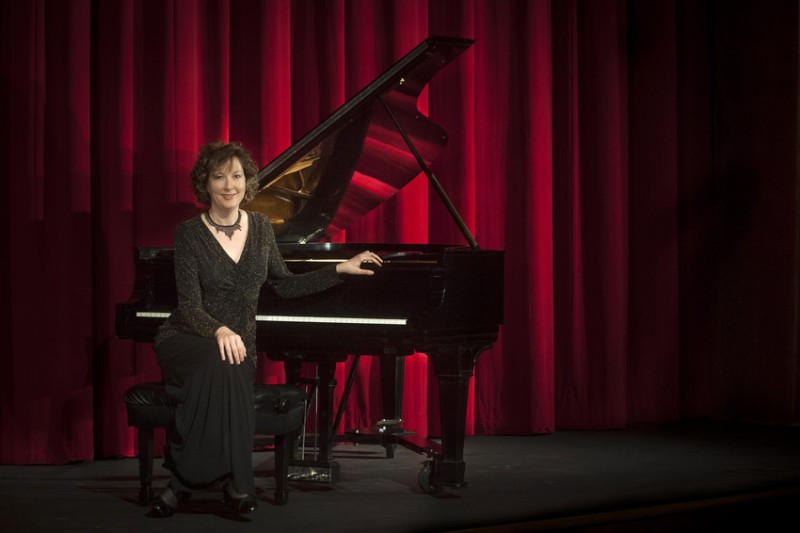Noémi Szigeti Lee was practicing Beethoven music on the piano with a high school friend just before Christmas, 1989, when her father called on the phone.
“Stay where you are,” he said.
 After several days of violence in other Romanian cities, the revolt against communist dictator Nicolae Ceaușescu had reached Lee’s city, Cluj. Factory workers and university students lined the streets to protest for freedom from the austere regime. The military responded with tanks and artillery.
After several days of violence in other Romanian cities, the revolt against communist dictator Nicolae Ceaușescu had reached Lee’s city, Cluj. Factory workers and university students lined the streets to protest for freedom from the austere regime. The military responded with tanks and artillery.
Lee and her friend heard gunfire through much of that night.
Now a University of Lynchburg music professor, Lee hears those gunshots again in the low notes she strikes on the piano for “Romania: Revolution 1989,” a new chamber opera by Roanoke composer Aaron Garber.
The opera premieres April 26 in at a church in Amherst County, but University of Lynchburg will host a performance on May 30.
The piece was commissioned by Amherst Glebe Arts Response, an arts and humanities organization. Lee plays four-hand piano along with the composer’s wife, Melia Garber, who also grew up in Romania. The ensemble also includes two singers: a tenor who represents a college student caught up in the revolution and a baritone representing the dictator.
The lyrics and the music are fitting to the events and emotions surrounding the revolution, as well as to the traditions that have defined Romanian music, Lee said.
The day after the violence spread through Cluj, Lee walked home. She heard an occasional gun and saw blood on the streets. But soon, the revolution ushered in a new era of freedom. Romanians were now more free to travel, attend church, and speak freely.
“I remember an incredible time of hope when Ceausescu fell,” Lee said. “People were running into the street and hugging each other.”
The fall of communism in Eastern Europe usually brings to mind images of less violent transitions, such as the fall of the Berlin Wall. The Romanian revolution stands out because of the violence preceding it and the citizens who gave their lives for freedom, Lee said.
“The Romanian revolution was the only one that required so much sacrifice,” she said. “I’m thankful that I can tell the world a little about it.”
“Romania: Revolution 1989” will be performed first at St. Mark’s Episcopal Church in Clifford at 4 p.m. April 26. Other performances include:
- May 2, 3 p.m., at Trinity Ecumenical Parish, Moneta
- May 30, 7 p.m., in Sydnor Performance Hall, Schewel Hall, University of Lynchburg
- May 31, 3 p.m., Heights Community Church, Roanoke
In addition to the pianists, performers include Scott Williamson, general and artistic director of Opera Roanoke, and Philip Anthony Bouknight, the pastor of Trinity Ecumenical Parish who has performed opera extensively throughout the United States and abroad. Composer Aaron Garber will introduce and conduct each performance.
Tickets for all performances are $10 for adults and $2 for children and students. They can be purchased in advance through LynchburgTickets.com. For more information, visit the Amherst Glebe Arts Response website.

